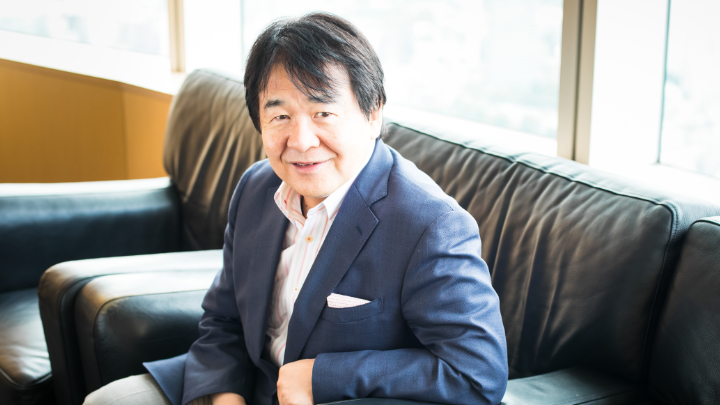




























Heizo Takenaka | Professor, Toyo University / Professor Emeritus, Keio University / Chairman, Institute for Urban Strategies, The Mori Memorial Foundation /President, Academyhills
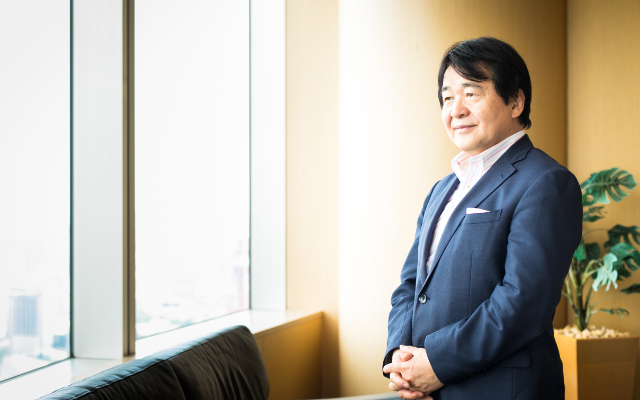
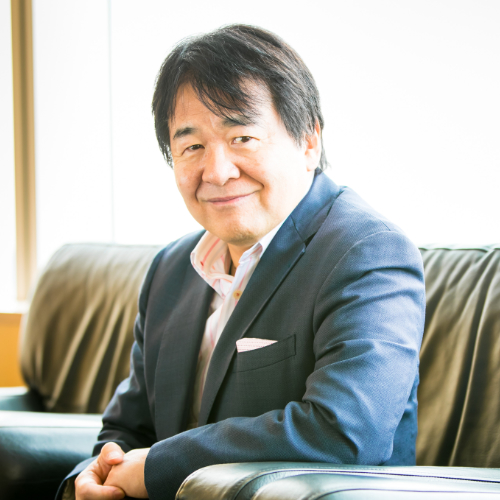
Heizo Takenaka is a Professor at Toyo University and a Professor Emeritus at Keio University. He is also Chairman of the Institute for Urban Strategies at The Mori Memorial Foundation and President of Academyhills.
In 2001, Prime Minister Junichiro Koizumi named him the Minister of Economic/Fiscal Policy, the Minister of both Financial Services and Economic/Fiscal Policy in 2002, the Minister of both Economic / Fiscal Policy and Privatization of the Postal Services in 2004, the Minister of both Internal Affairs and Communication, and Privatization of the Postal Services in 2005. The following year, he returned to academia, leaving both the Cabinet and the House of Councilors when Prime Minister Koizumi resigned.
He received his B.A. in Economics from Hitotsubashi University and his Ph.D. in Economics from Osaka University. His academic experience is numerous, including Visiting Associate Professor of Harvard University in 1989, and Professor of Faculty of Policy Management at Keio University in 1996.
He is the author of numerous books, including "The Structural Reforms of the Koizumi Cabinet".
ICF got its start around the idea of conceiving of cities and lifestyles of the future some twenty years out. This year, we welcome our fifth year of operations. Some of the things that seemed intuitive to us five years ago have come to pass today, and the context in which we discuss cities has become ever more complex and consists of newer and more stratified dimensions. To that end, specialists in various fields are being turned to to share their insights with each other. We interviewed Mr. Takenaka of the program committee for ICF, which is seeking to create a forum in which there are no boundaries between speakers and the audience, and about the complexity of issues that cannot be resolved by experts alone, interesting trends in cities overseas, and what changes and challenges await Tokyo in the future.

Larger, macro trends in the global society in which we live include the rapidly globalizing economy, technical advances through digital technology, and the pursuit of art with more complex psychological and spiritual dimensions. The intersection of these elements is cities and innovation itself.
For example, while global competition is more neck-and-neck today, in point of fact, this could be applied to cities as well. There is stiffer competition between cities. Innovation occurs when various elements come together, so to that end, diverse companies, diverse communities, and places which lend themselves to these people and groups congregating are keys to successful cities. Therefore, the growth of cities is on the same vector as globalization itself.
In terms of new technical advances, too, it is only natural that the importance of cities is being looked at anew and reassessed. The term “Industry 4.0” was first used in Germany in 2011; around 2012, initiatives towards big data began in the US and UK, with major advances in the fields of AI and deep learning driving this. As you look at these technological changes, it becomes clear that cities are where innovation occurs.
In turn, people are seeking new and more added value in which there is mental and personal satisfaction. Art is a classic example of a realm that offers a “value beyond,” and ultimately it is in cities where these culturally-oriented lifestyles are offered. You might also say that the appeal of cities is the way they offer innovation and new lifestyle options.
The innovative city forum (ICF) was based on drawing insight from the new era we entered about 15 years ago. The initiative started in 2013 and has also worked in consort with the idea of Industry 4.0. ICF has focused on cities while creatively debating the future in a comprehensive fashion that includes innovation, technology, and art. The process has used intuition to forecast the future and discuss challenges and issues, and what you find when talking to people with great foresight is just how valuable it was to have launched ICF five years ago. It has truly been worthwhile.
One focus of ICF has been what I call "CCE" -- critical thinking, creative thinking, and effective communication. First is the ability to think in an analytical and critical fashion. Next is having a creative mindset. Lastly, the goal is communicating effectively in an intuitive manner to large groups of people, not just among a cadre of select experts and artists. It is impossible to discuss the future of complex cities in the absence of CCE. That is why this year, the fifth year of ICF, we want to return to the roots of CCE and redefine that process.
We are also building programs that are au courant to today's times and engaging luminaries like Joi Ito to gain valuable insights. At the same time, we recognize that the people who ultimately drive cities forward are those who live and work in them. There are no issues that can be solely solved by experts alone. Cities develop out of the mutual agreement of many stakeholders. Therefore, these people must engage and stimulate each other and act creatively. To that end, we consider the brainstorming sessions, which we started last year as a venue for people to actively exchange opinions, to be extremely important. Through these sessions, we want people to go home with a greater understanding of diversity and provoke them to think in new ways.
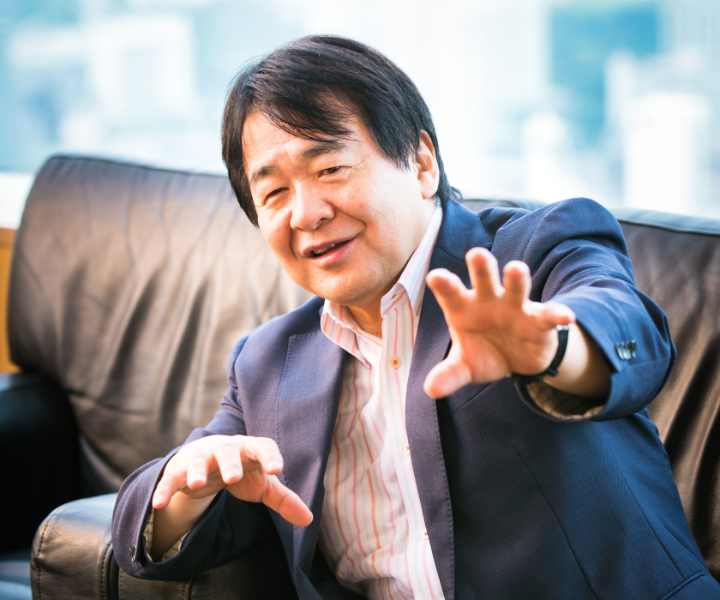
There are many types of cities in the world. You have comprehensive cities like New York, London, and Tokyo, and you also have cities of a mid-sized scale like Vienna or Munich. Then there are city-states like Hong Kong and Singapore. Thus far the "top" cities in terms of scale have been thought of as London, New York, Tokyo, and Paris. But now Singapore has grown to a point to be directly behind those four. The gap is shrinking. This is because Singapore continues to launch new policy after new policy.
I have spoken to Lee Hsien Loong, who was a classmate of mine at Harvard, about what that driving energy is and where it comes from. He said they are always moving forward with a sense of tension and awareness that if they aren't on the cutting edge, their small size as a nation will cause them to be left behind. In Japan, however, we lack that sense of tension, so no one has even attempted to broach an answer as to whether our cybersecurity measures will be satisfactory for the Tokyo Olympics, among other issues. Put differently, my sense is that cities rooted in that healthy sense of tension become ultimately stronger. "Healthy tension" is a truly important keyword. While it is not something to get pessimistic about, it has to be said that Japan absolutely needs this healthy tension.
Singapore's growth over the last year is owed to its creation of a regulatory sandbox. Like a sandbox, this is a free space signed off by the government in which to experiment by trial and error. London was actually the first place to try this in order to freely experiment beyond the confines of existing policies and regulations such that the UK could stay competitive with American FinTech. Some months later, Singapore followed England's lead, and its regulatory sandbox went on to be a place for the Bank of Tokyo-Mitsubishi UFJ and Hitachi to experiment with blockchain technology.
I have emphasized the importance of such an initiative to prime minister Abe over the last year, and this July, Japan added a regulatory sandbox to its growth strategy, so it is finally starting up in Japan. What was unique to me on a visit to Singapore was that the director and a section head of Singapore's Ministry of Finance, with whom I met, greeted me in T-shirts and jeans.
In contrast to the slowness with which Japanese FinTech has developed, India has posted growth as amazing as Singapore's. When you decide to pursue FinTech using digital networks, the task that looms before you is authentication and the use of identification numbers. In Japan, only 10 million, or 1 in 12 people, have registered for a number. In India, 1.1 billion of its 1.2 billion residents have registered.
That is why people in India say they will be on the cutting edge ten years from now. India is home to Infosys, a noted financial entity co-founded by the talented entrepreneur Nandan Nilekani. India's Unique Identification Authority assigns numbers to residents, and Nilekani served as its first chairman. Japan has no such bureau, but it would be like Masayoshi Son of SoftBank becoming chairman of a national organ.
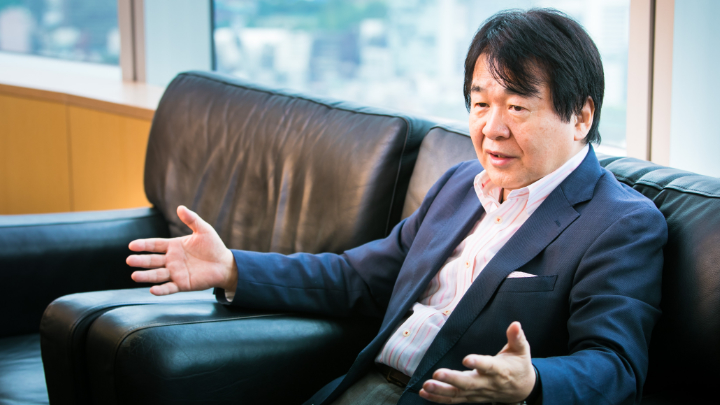
One thing that dramatically changed over the last year was the population of inbound travelers. One factor was the way the exchange rate periodically dipped to 79 yen to the dollar; the other was the easing of visa procedures. As you know, visitors from Thailand and the Philippines increased by some sixty percent all at once. In that sense, liberalization and macroeconomics have helped. This has caused Tokyo to change by leaps and bounds. When you walk around at night, you see people from overseas everywhere.
While Haneda Airport's updating to service international routes has also made inbound access much better, accessibility is not just about connecting a capital city and the airport, but connecting cities within the country and around the world through the locus of the airport. So Tokyo is still behind in that regard. If we combine Haneda and Narita, you can reach some 100+ cities. But Heathrow in London takes you to 300 cities. In that way, both Haneda and Narita are not geopolitical hubs yet.
The key point is that Heathrow is operated in a concession-style by a private sector firm. Airports have historically developed and grown through the concession format, and since last July, Sendai Airport has begun changing under the guidance of the Tokyu group of companies. Fukuoka and seven other growing airports are in the concession style, so that mode is slowly taking root in Japan. However, the crux is still Haneda and Narita. If these were privately operated, we would see dramatic changes.
People generally describe Japan as a "land of hospitality." However, Japanese hospitality is actually quite poor, I think. Take a look at the lines of people from overseas going through immigration at Narita Airport. The lines are long and snaking. They are made to wait up to an hour at times. Is that the kind of hospitality we should be showing people? This is seldom seen anywhere else.
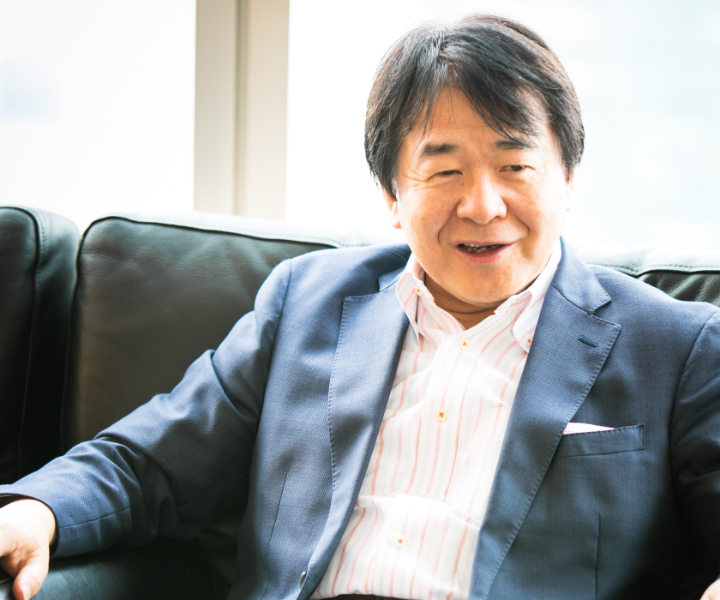
We tend to have a distinction between speakers and audience, but I actually want to break down that barrier. To put it differently, I want everyone to take the stage. Brainstorming is a chance to do just that. This year, we have even more key people and “resource people” than last year. Fundamentally, we want everyone to take an active role. As Tokyo heads towards 2020, the question is of what Tokyo as a city will do, what individuals will do, and so forth. We want to be asking those questions of participants.
This is still a new initiative, so I’m sure people have some uncertainty about things. They take part, jot down notes, and leave. There are still many people in Japan who are accustomed to that “study session” or “workshop” oriented approach to meetings. However, the essence of the brainstorming sessions is enjoying that uncertainty. The same is true of events like Davos -- the point of that meeting is not to arrive at a conclusion, but rather to gain inspiration that fosters paradigm shifts. Debate proceeds with a certain sense of the unknown. I hope participants will actively engage with the event and find some takeaways for themselves.
